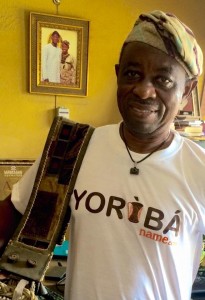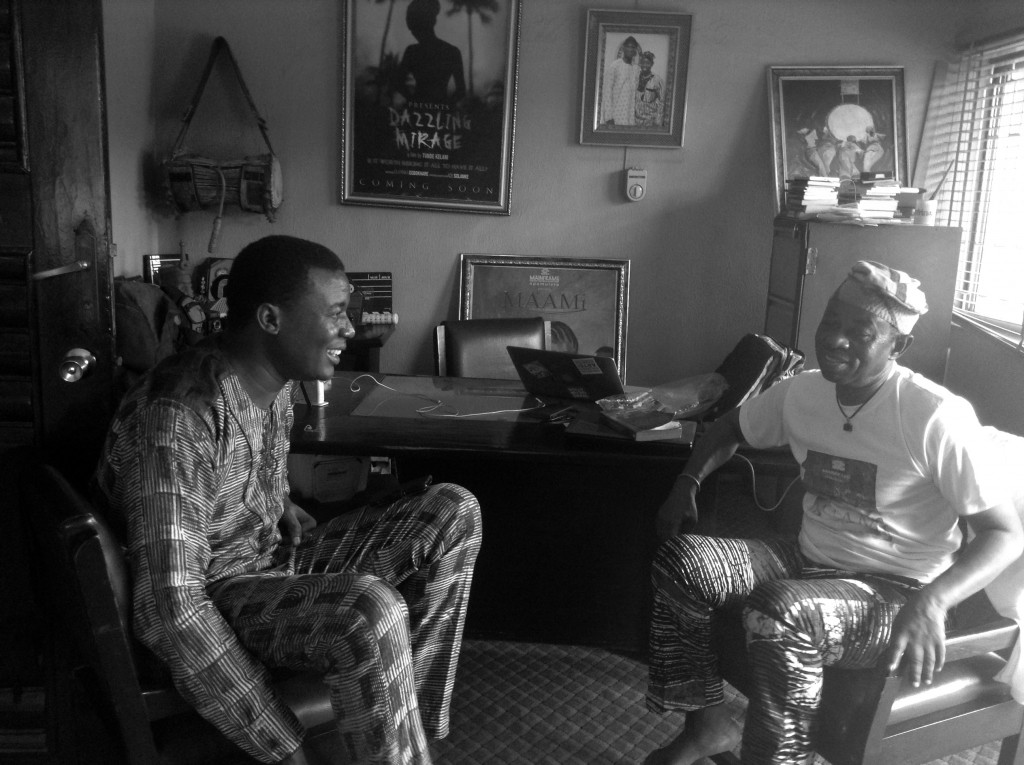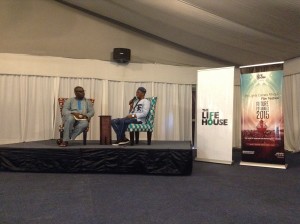 There’s probably nothing I can say about him today that hasn’t been said better by others, or that I haven’t said before on this blog. His work over many decades represent a significant guiding light to the little work I (and many others) do in defence of African languages and culture. Through filmmaking, he has helped place African culture on the global map, but more importantly, given us an alternative and authentic portrayal of ourselves (to ourselves and to the world). He is restless, dedicated, hardworking, meticulous, thorough, and he knows what he is doing.
There’s probably nothing I can say about him today that hasn’t been said better by others, or that I haven’t said before on this blog. His work over many decades represent a significant guiding light to the little work I (and many others) do in defence of African languages and culture. Through filmmaking, he has helped place African culture on the global map, but more importantly, given us an alternative and authentic portrayal of ourselves (to ourselves and to the world). He is restless, dedicated, hardworking, meticulous, thorough, and he knows what he is doing.
The journey for me with his work started with Ó Le Kú (the film portrayal of the novel by Akínwùmí Ìṣọ̀lá which renewed my interest in the University of Ìbàdàn as a place of study), then Kòṣeégbé, and then Thunderbolt/Mágùn which premiered while I was an undergraduate at UI: a beautiful film of a cultural contact, trust, and repercussions. And then there was Ṣaworoidẹ, which embodied a nation’s pain and provided needed catharsis for a turbulent political time. There have been many more, like Yellow Card, and Agogo Èèwọ̀ and Campus Queen. Through his Mainframe Òpómúléró film house, he has challenged us, and led us, and surprised us, and guided us.
In those movies and more, TK as he is fondly called continues to define and redefine what it means to be an African filmmaker. More than the quality of his cinematography, dialogue, setting, and plot is his painstaking attention to casting. Through his work, we discovered the talents of actors like Lárìndé Akinlẹ̀yẹ (of blessed memory), Kúnlé Afọláyan, Kafilat Káfidípẹ̀, Lala Akindójú, among many others, placing them in roles where their artistic talents were best utilised in the furtherance of the story. His latest movie is an adaptation of a novel by Ọláyínká Egbokhare, dealing with an issue that can’t be discussed enough: sickle cell. He has also worked in drama (Lànkẹ́ Ọ̀mu, Yèèpà, among others).

He turns 68 today, Babátúndé Kèlání, a veteran movie director and producer, Ìkòyí ẹ̀ṣọ́ abì pelemọ l’ójú ogun. I wish him a happy birthday, and many more years in pursuit of African excellence in filmmaking.
